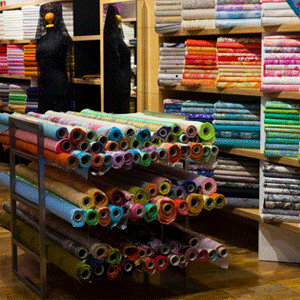
The growing demand for renewable variants of plastic bags for packaging items is primarily driving the eco-friendly product variants of conventional carry bags used to hold purchases and package items. Currently, there is an increase in the demand for non-woven fabrics in India on account of the growing awareness among individuals about the health hazards of plastics.
With the solution to this unpleasant problem, J.B. Fashions, the most reliable producer of modern non-woven fabrics and consumable products, has created a niche by constantly innovating in its product range. The company was founded in 2017 in Haryana and caters to the requirements of new-age industrial needs in diverse sectors, including agriculture, medicine, water purification, material handling, and packaging.
J.B. Fashions product lines include non-woven spun bond fabric, non-woven spun bond fabric, laminated non-woven fabric, and woven sack fabric. All the products manufactured at J.B. Fashions are made with the core norms of international standards and perfectly cater to the client's requirements.
"We produce a variety of non-woven fabric rolls in a range of GSMs (20 to 130), in roughly 15 to 16 different colours, and in six to seven different qualities depending on the price point. We recently added a line of water-repellent woven fabric, which is primarily used in packaging industrial
materials and raw materials", says Balkishan Garg, Managing Director, J.B. Fashions.
Quality Assurance
J.B. Fashions always envisions the virtues of quality, competency, innovation, creativity, and valued performance. The firm works on three parameters, namely, reasonable pricing, quality products, and after-sale feedback to fulfil the client's expectations. Being in a price-sensitive market, clients have to maintain their margin so they prefer products at a reasonable cost. A tea vendor, for example, will choose simple fabric over printing quality fabric. Thus, the firm caters to all segments as pricing is a concern. For quality control, J.B. Fashions involves a systematic workforce, including a quality control manager, dispatch managers, and a sales manager. The process began with the manufacturing unit once the order is placed it has to be fulfilled within a stipulated time frame.
"For example, if orders have to be fulfilled in 10 days, the manufacturing unit has to complete the production in about five to six days and then the order is shipped by the dispatcher on the eighth or ninth day. So, the customer gets the order on the 10th day, and then the quality manager verifies the quality issues in the product. If any quality issue occurs, we connect with the client and try to resolve it to the client's satisfaction. After-sales, client feedback, and complaints are entertained by a risk redress system related to product thickness, length, and quality", briefs Amit Garg, Owner, J.B. Fashions.
J.B. Fashions always envisions the virtues of quality, competency, innovation, creativity, & valued performance
Furthermore, J.B. Fashions' infra¬structure is well-equipped with all the necessary tools and the latest machines. With this hi-tech technology system, the firm can meet the bulk requirements of its client within the specified time. The infrastructure includes 3.2 meters spun-bound fabric machine, 1.6 meters spun-bound fabric machine, a navrang lamination machine, and lohia woven fabric plant.
J.B. Fashions is currently operating at 1200 tons capacity. The company is actively working towards increasing its efficiency at this level. Ultimately, J.B. Fashions' annual sales have surpassed the 100 crore mark. In the future, the firm plans to expand its capacity to 1000 tons per month, an increase in capacity and work efficiency will reduce the cost, and eventually, the benefit will be transferred to the client. The expansion plans of J.B. Fashions include getting into the printing of fabrics with rotogravure or needing punch, but the main focus will be to increase production as much as possible.
We use cookies to ensure you get the best experience on our website. Read more...